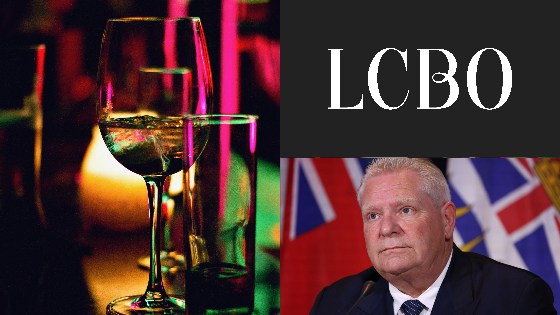Pouring out a bottle of Crown Whiskey on live stream is a political appeal to populism. Doug Fords progressive conservatives maintain popularity within Ontario’s democratic system by employing a pragmatic style of populism best understood through the provinces alcohol policies.
Populism is a word many have grown weary of though in our current socio-economic-political reality, it’s in many ways unavoidable. How dangerous it depends on what form is best adapted to your present community.
Populism, according to Brock University political science professor Stefan Dolgert can be defined as “a rhetorical style in politics that tries to make appeals to…the very middle class…even the lower middle class.” In other words, a persuasive style of politics that targets specific issues that large chunks of the voting base (the middle class commonly) react to.
Professor Dolgert describes populism as a form of emotion appealing politics that can take many forms depending on what the population in question responds to. Very broadly, Americans tend to respond to ideological populism, think “Make America Healthy Again” or M.A.H.A which offers ideological and simply solutions to often broader issues that strike at people’s emotional responses.
An example would be replacing high fructose corn syrup with cane sugar in Coca-Cola as a political movement to solve America’s obesity epidemic. This appeals to people’s emotions in the sense that there’s a current push towards more natural ways of life which in itself is a sort of response to overmedicalization.
However, obesity in America has more to do with things like food desserts, car centric designs and collapsing buying power leading to longer more stressful workdays; none of which are simple fixes.
Ontario’s current style of populism takes a tamer route and tends to appeal more to pocketbook issues. As it stands Ontarians are not as politically ideological as other populations in Canada or elsewhere.
This form of populism is still emotional in the sense that it feels like the government cares about the cost-of-living crisis by “saving” people a few hundred dollars through license plate fees, making alcohol slightly cheaper or literally giving people 200 bucks in the mail.
These are again simply lip service to a very real cost-of-living crisis in which real solutions are more complex and require bolder action. Think things such as massively expanding transit, housing reform and breaking up grocery monopolies.
But these policies feel good and a lot of people are okay with just that, which is why these policies have found themselves very popular in the province.
Alcohol policies in particular have been pointed out as the most visible of these populist policies from the Ford government.
In summary quick summary of them.
Fords first popular alcohol policy was the buck-a-beer program that promised to lower the cost of a beer to a dollar, followed by bringing booze to corner stores, paying extra to bring that booze to corner stores early, removing American booze in light of tariffs, axing the minimum retail price of alcohol and most recently pouring out a bottle of Crown Whiskey in protest of Crown moving bottling out of Ontario.
These policies, apart from expanding alcohol access in Ontario, really reflect the pragmatic populism employed by Ford that’s kept him so wildly popular in the province. With Ford having won three consecutive majority governments, something that hasn’t happened since 1959.
Alcohol populism really works because it strikes two perceived points that appeal to people in Ontario according to professor Dolgert. It strikes at some people’s innate skepticism at government regulations, i.e. “why can’t I get a six pack of beer anywhere?” and again it appeals through populism, i.e. “The government care about the cost-of-living crisis and it is making alcohol more affordable.
While this tends to appeal more to more “contemporary conservatives” in Ontario there’s also an overlap with non-conservatives since the cost of alcohol generally isn’t split along political ideologies.
Ford, like any other politician, is simply in the business of being reelected and this form of visible pocket-book-oriented populism has kept him popular. His stint into nationalist populism during the 51st state conundrum has further boosted his popularity.
In a way Ford is successful because he understands how to please his base without antagonizing those outside it. In an era where most politicians now center their campaigns on antagonizing the other side (Poilievre, Trump) Doug Fords approach can be viewed as refreshingly civil even though his policies may not be agreeable.
In quantifying Fords success and style of populism however it is important to recognize that Ontarians are stunningly politically absent with only 45 per cent of eligible voters in Ontario voting translating to roughly 5 million out of 11 million eligible voters voting.
So the next time you see Doug Ford harping on about something booze related and wonder why “it’s always booze with this guy” you can chalk it up to him being a pragmatic populist who’s been wildly successful in a province where half the voter population doesn’t care to be heard.

